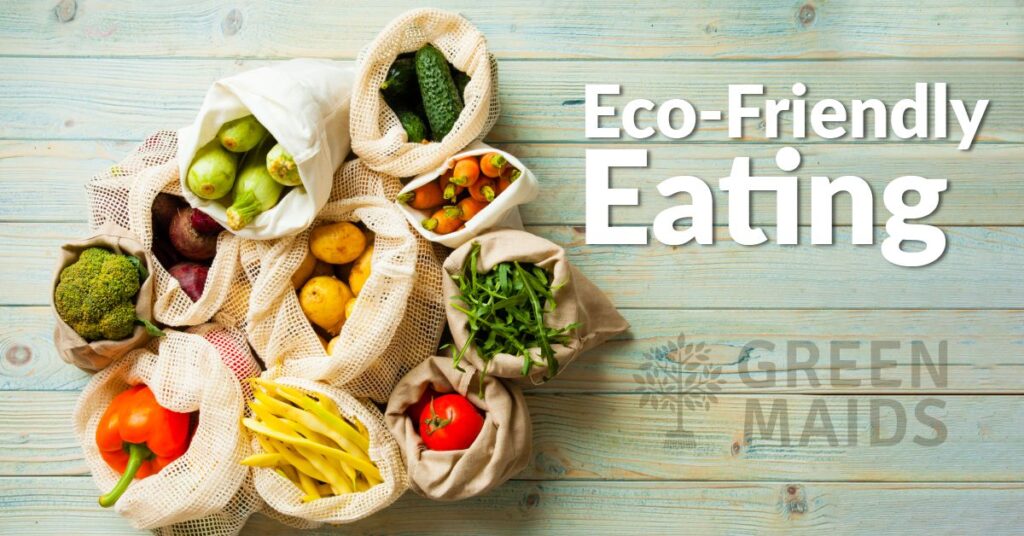Home cooking and baking has experienced a resurgence in recent years and in general making your own food has a positive environmental impact, reducing waste used in packaging and manufacturing. But there are further steps you can take to ensure your meals are as eco-friendly as possible, starting with the ingredients you use. Whenever possible, try to purchase fruits, vegetables, herbs, dairy products and meat or fish grown or produced close to home. Local ingredients not only taste better, but cutting out long distance travel reduces fossil fuel emissions and eliminates the need for additives used to extend the life of foods.
Some crops are more environmentally costly than others and with a little research you can choose wisely without compromising quality. One way to do this is to switch up the flours you use for baking. Soil is depleted of nutrients when the same crops are planted year after year, so rotating the types of crops planted restores vital nutrients to soil. Substituting spelt, oat, or rice for traditional wheat flour is a much more sustainable alternative.
Cattle are responsible for a third of all greenhouse gasses produced and consume vast resources in land and water. The production of beef requires twenty times the amount of land that’s needed to grow beans with an equal protein content. In addition to having a small carbon footprint, beans use less than a third of the water used to produce meat. And if you’re not ready to give up meat altogether, try to buy from local farms. Animals are generally treated more humanely than in industrial agriculture and your food doesn’t have to travel far to reach you.
Other highly sustainable foods:
Mussels, the majority of which are farmed rather than harvested from the ocean. The bivalves are high in protein and remove carbon dioxide from the ocean as part of their growth cycle, reducing greenhouse gasses.
Mushrooms, which use by-products from other crops and require minimal land and water to grow.
Legumes like lentils and peas are environmentally beneficial because, in addition to needing little water to grow, they release nitrogen into soil that can be used by other plants.
Organic produce, especially when locally grown, means no chemical fertilizers or pesticides and minimal food miles.


